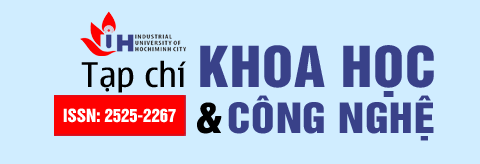INVESTIGATING NON-ENGLISH MAJORED STUDENTS' SELF-PERCEPTIONS OF ENGLISH-SPEAKING PROFICIENCY AND THE USE OF TECHNOLOGICAL TOOLS FOR SELF-DEVELOPMENT
Main Article Content
Abstract
The rapid social development taking place in the last decades has been inextricably linked with the evolution of technology, which has had profound impacts on various sectors and services, especially education. The incorporation of information and communication technologies (ICTs) into daily pedagogical practices has emerged as a viable solution for innovating the educational system. In this context, a quantitative study was conducted to explore how non-English majors self-perceived their English-speaking proficiency and utilized technological tools for self-development. The study surveyed 1,036 out of 3,991 (27%) second-year students who were not English majors and were attending a public university in Vietnam. The data collection and analysis revealed that while the participants had positive self-perceptions towards English learning, they also acknowledged areas that need improvements in their English-speaking skill. The study also indicated that certain educational technological tools have been used by the participants to improve their English-speaking proficiency. The findings of the study underscored the importance of incorporating technological tools into language learning to promote more engagement and opportunities for practice. Additionally, the study emphasized the crucial role of teachers in promoting the use of technological advancements in various language learning environments.

